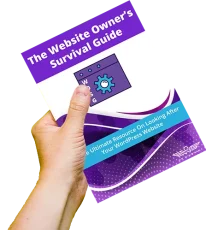 Google has released some more information on the Webmaster Central Blog about how its algorithms determine high-quality website content.
Google has released some more information on the Webmaster Central Blog about how its algorithms determine high-quality website content.
Is this the on-line year of the panda?
If you’ve been following any sort of SEO news in the past few months, it’s likely that you’ve heard about the Google Panda algorithm update which changed the search results coming back from Google’s search homepage.
The main aim of the huge update was to weed out low-quality websites with poor and/or duplicate non-authoritative content.
Some website owners have reported up to a 30% drop in website traffic since the update, due to lower rankings in the search results, and many are not happy about the change.
One of the main gripes against Google has been their slowness to quantify what they mean by low-quality and high-quality content.
Of course nobody expects Google to share the secrets of their search engine algorithms, however, the lack of guidance on what they consider to be high-quality content has not one them many friends in the last few months.
What is a high-quality website?
Finally we have received some insight from Google itself as to what they think makes website content high-quality.
From Amit Singhal on the Webmaster Central blog:
“…if you want to step into Google’s mindset, the questions below provide some guidance on how we’ve been looking at the issue:
- Would you trust the information presented in this article?
- Is this article written by an expert or enthusiast who knows the topic well, or is it more shallow in nature?
- Does the site have duplicate, overlapping, or redundant articles on the same or similar topics with slightly different keyword variations?
- Would you be comfortable giving your credit card information to this site?
- Does this article have spelling, stylistic, or factual errors?
- Are the topics driven by genuine interests of readers of the site, or does the site generate content by attempting to guess what might rank well in search engines?
- Does the article provide original content or information, original reporting, original research, or original analysis?
- Does the page provide substantial value when compared to other pages in search results?
- How much quality control is done on content?
- Does the article describe both sides of a story?
- Is the site a recognized authority on its topic?
- Is the content mass-produced by or outsourced to a large number of creators, or spread across a large network of sites, so that individual pages or sites don’t get as much attention or care?
- Was the article edited well, or does it appear sloppy or hastily produced?
- For a health related query, would you trust information from this site?
- Would you recognize this site as an authoritative source when mentioned by name?
- Does this article provide a complete or comprehensive description of the topic?
- Does this article contain insightful analysis or interesting information that is beyond obvious?
- Is this the sort of page you’d want to bookmark, share with a friend, or recommend?
- Does this article have an excessive amount of ads that distract from or interfere with the main content?
- Would you expect to see this article in a printed magazine, encyclopedia or book?
- Are the articles short, unsubstantial, or otherwise lacking in helpful specifics?
- Are the pages produced with great care and attention to detail vs. less attention to detail?
- Would users complain when they see pages from this site?
”
Good quality content is still the key to having a great website
Creating a computer algorithm to determine what is and what is not high-quality content is a tough call, however, it looks like Google are on the right track.
Using the guidance they have provided, webmasters can start to look through their sites with a critical eye, zeroing in on existing content which isn’t quite up to the high standards that Google is looking for.
Equally, content writers now have a fantastic insight into how they can make their articles shine and stand out from the rest.
How do you find your website’s low-quality content?
Looking through your website analytics software is the best place to start. We use the free tool Google Analytics to review our own and customer websites.
Viewing the Top Content report gives some helpful information to help determine content that is low-quality.
By looking at pages with a low average time spent on page and high exit rate of visitors you can start to identify and address the issues those pages have.
Rewriting a page’s content or even simply removing it from the should increase the overall quality of your website, according to Google at least.

